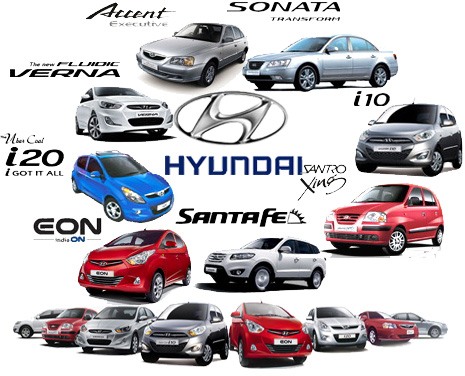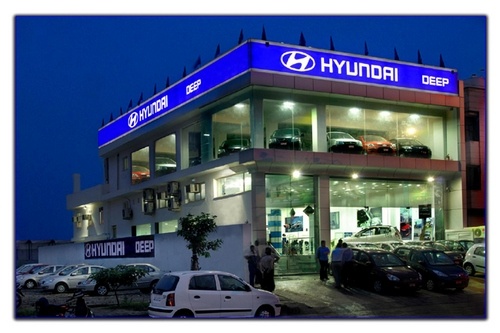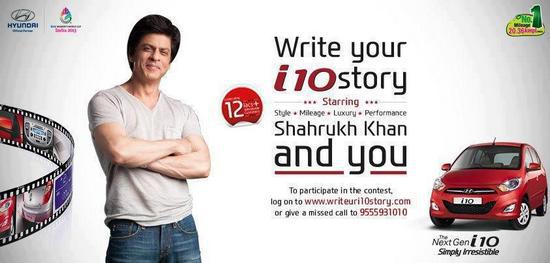The Marketing mix of Hyundai Motor analyses the 4Ps of Hyundai Motor, which includes the Product, Price, Place, and Promotion of Hyundai Motor. Hyundai Motor Company is a multinational corporation headquartered in Seoul, South Korea, that is associated with the automotive industry. It was founded in 1967 by Chung Ju-Yung and its subsidiary, Kia Motors, and they formed the Hyundai Motor Group. Hyundai is a public company that originated in South Korea.
In 2008, Hyundai Motor, without its subsidiary Kia Motors, was declared the eighth-largest automaker; in 2012, Hyundai Motor Group, along with its subsidiary Kia Motors, was declared the fifth-largest automaker in terms of annual sales of its vehicles in the global market.
Total sales of Hyundai vehicles in 2012 were estimated at 7.12 million. In terms of popularity, it is one of the most common and popular brands in the automobile industry. In 2015, the company introduced a new luxury car brand called Genesis Motors. Hyundai faces stiff competition in the global market, and some of its main competitors are as follows-
- Ford
- Volkswagen
- Toyota
- Skoda
- Tata Motors
- Maruti Udyog
- Mitsubishi
- Fiat
- Chevrolet
- Nissan Motors
- Honda
About Hyundai Motors
- Type: Multinational automotive manufacturer
- Industry: Automotive
- Founded: December 29, 1967
- Founders: Chung Ju-yung
- Headquarters: Seoul, South Korea
- Area served: Worldwide
- Current CEO: Jaehoon Chang
- Number of employees: 75,000+
- Major products: Cars, SUVs, trucks
Table of Contents
Hyundai Motors Product Strategy
The first model of the Hyundai Motor Group was Cortina in the year 1968, and it was co-produced with Ford Motor Company. In 1975, the company launched its first solo-effort car, Pony, and started exporting to countries like Ecuador and Canada. In 1986, Hyundai launched its vehicles in the United States, and its car Excel was declared one of the best ten products.
The new Product Mix of Hyundai Motor in 2023 is as follows (Source).
- Sedans and Compact Cars: This category includes a range of vehicles from compact models like the Hyundai Accent and Elantra to mid-size and full-size sedans like the Sonata. These cars are known for their fuel efficiency, affordability, and suitability for everyday use.
- SUVs and Crossovers: Hyundai offers a variety of SUVs and crossovers, such as the Tucson, Santa Fe, and Kona. These vehicles are designed for versatility, combining the comfort of passenger cars with the capability of off-road vehicles, and are popular among families and adventure seekers.
- Luxury Vehicles: Under its luxury brand, Genesis, Hyundai manufactures premium sedans and SUVs like the Genesis G80 and GV80. These vehicles compete in the luxury car market and are known for their high-end features, sophisticated design, and superior performance.
- Electric Vehicles (EVs) and Hybrids: Hyundai has been increasingly focusing on environmentally friendly vehicles, including various electric and hybrid models like the Ioniq and Kona Electric. These cars cater to the growing demand for sustainable and energy-efficient transportation.
- Performance Cars: The Hyundai N line, including models like the Veloster N and i30 N, offers performance-oriented vehicles with enhanced engine capabilities and sporty designs that appeal to driving enthusiasts.
- Commercial Vehicles: Hyundai also produces a range of commercial vehicles, including vans, trucks, and buses, catering to business needs for transportation and logistics.
- Hydrogen Fuel Cell Vehicles: Hyundai is one of the pioneers in developing hydrogen fuel cell technology for vehicles, with models like the Nexo. These represent the company’s commitment to alternative energy sources and cutting-edge automotive technologies.
Hyundai Motors Place Strategy
Hyundai was the fourth-largest manufacturer of vehicles in the global market in 2016 and has the largest manufacturing facility for integrated automobiles globally. It is located in Ulsan, South Korea, and has 1.6 million units of production capacity annually. Hyundai believes in its qualitative products and services and has various regional manufacturing plants. Its European plant is located in Nosovice and can manufacture 300,000 vehicles annually. The company has also opened R&D facilities in places like Hyderabad, which employs nearly 450 engineers to provide engineering and technical support in the development of vehicles.
Vehicles belonging to Hyundai Motor Company are sold in nearly one hundred and ninety-three countries and across the globe. It has a proficient distribution channel comprising car dealerships, salespersons, and retailers, and all these are possible because of nearly 5,000 showrooms and dealerships. The company employs almost 75,000 employees who are competent enough to manage good revenues. Hyundai has to penetrate all markets and has undertaken numerous steps to reach every country’s rural parts with several dealership outlets.
Important in the place element of Hyundai is also the fact that their dealerships have beautiful outlets. Most dealerships have multiple sales personnel to attend to the numerous customers walking in. Once the customer walks in, a salesperson presents them with all the car options and understands the customer’s demography and requirements. Accordingly, the deal is finalized. The sales executives are well trained with ample competitive knowledge to close the customer who has walked in. The company takes care of the training. The same outlet also acts as a service center, so the customer feels confident about the service. Here’s Hyundai Motor’s place strategy.
- Global Manufacturing and Assembly Plants: Hyundai has strategically located manufacturing and assembly plants worldwide, including in key markets like South Korea, the United States, China, India, and Europe. This global presence helps reduce shipping costs, meet regional demands more efficiently, and mitigate the impact of geopolitical risks.
- Extensive Dealer Network: Hyundai boasts a vast network of dealerships globally, ensuring the broad availability of its vehicles. These dealerships are critical touchpoints for customer interaction, providing sales, service, and support.
- Online Sales Platforms: Embracing digital trends, Hyundai offers online sales options in many markets. This approach complements traditional dealership sales, catering to the growing number of customers who prefer the convenience of online shopping.
- Local Market Customization: Hyundai tailors its vehicle offerings to suit local market tastes and preferences. This includes adjusting features, models available, and even marketing strategies to align with regional consumer behavior and regulatory requirements.
- Strategic Partnerships for Distribution: Hyundai forms strategic alliances with local partners in various countries to enhance distribution and logistics. This includes collaborations for shared manufacturing facilities, technology transfer agreements, and local dealer partnerships to strengthen market penetration.
Hyundai Motors Pricing Strategy
Hyundai is a global brand that has been tapping the emerging markets successfully. Its competitive pricing strategy and policies have helped it maintain its position as one of the best automakers in the industry. It has manufactured numerous vehicles to cater to different sections of society and kept varied pricing policies for them. Some of its cars belong to the competitive pricing category, whereas others, like the luxury car Genesis, belong to the premium pricing category.
To make its penetration policy successful, it has managed to keep its prices affordable for consumers. Hyundai has been known for supplying value-based products, and its prices have been set at a competitive rate compared to competitors. It can also be considered value-based pricing for car models because as the value provided in each model changes, the car price rises. It also gives several trade benefits to its dealers to promote the products from time to time.
Here’s an in-depth look at their approach:
- Value-Based Pricing: Central to Hyundai’s pricing strategy is offering excellent value for money. The brand is known for providing feature-rich cars at competitive prices, making advanced technology and quality accessible to a broader customer base.
- Market Penetration Pricing: Hyundai often adopts a market penetration pricing strategy in new and emerging markets. This involves setting lower initial prices to attract customers quickly, establish a market presence, and gain a foothold against established competitors.
- Competitive Pricing: In markets with intense competition, Hyundai strategically prices its vehicles to be on par with or slightly lower than its competitors while offering superior features or quality. This approach is vital in markets dominated by other major automotive brands.
- Dynamic Pricing for Different Segments: Hyundai’s diverse portfolio allows for dynamic pricing across different segments. From affordable compact cars to premium Genesis models, prices are set according to each vehicle’s target market, features, and positioning.
- Geographic Pricing Strategy: Recognizing the economic variances across regions, Hyundai adopts geographic pricing strategies. Prices vary depending on local taxes, import duties, shipping costs, and market-specific demand.
- Promotional and Seasonal Discounts: Hyundai employs promotional pricing tactics, including discounts, financing offers, and loyalty programs, particularly during new model launches, festive seasons, or as part of seasonal sales campaigns.
- Premium Pricing for Advanced Models: For its luxury brand, Genesis, and high-tech models like electric and hydrogen fuel cell vehicles, Hyundai adopts a premium pricing strategy. This reflects these vehicles’ advanced technology, superior quality, and exclusive features.
Hyundai caters to a broad spectrum of customers through this multifaceted pricing and marketing strategy, from budget-conscious buyers to those seeking luxury and exclusivity. This approach fosters brand loyalty across different market segments and solidifies Hyundai’s reputation as a brand that delivers quality and value at every price point.
Hyundai Motors Promotion Strategy
Hyundai recognizes the potential of promotional activities and has always gone for different and varied digital marketing strategies to create positive brand awareness. 2012, the company started a global brand campaign emphasizing its modern premium thinking process.
Hyundai wanted every customer to relate their vehicle with moments of happiness and good memories. The company has been associated with different sports to create its brand visibility. It entered motorsport in 1998 and 1999, competing in World Rally Championships. It has various sponsorship deals in sports like FIFA, A-League, Korea Football Association, Brisbane Lions, and Hyundai Hockey Helpers.
In 2015, Santa Fe became Pope-mobile officially for Pope Francis. Hyundai has made various ads and commercials broadcast on television, radio, and print media like magazines, newspapers, and hoardings. It has also started utilizing online facilities to promote products as it realizes its potential. Superstar Shahrukh Khan has been associated with Hyundai as its brand ambassador.
Some Recent Video ads and Print ads of Hyundai Motor are:
Liked this post? Check out the complete series on Marketing Mix



This is very important article. Tnx.